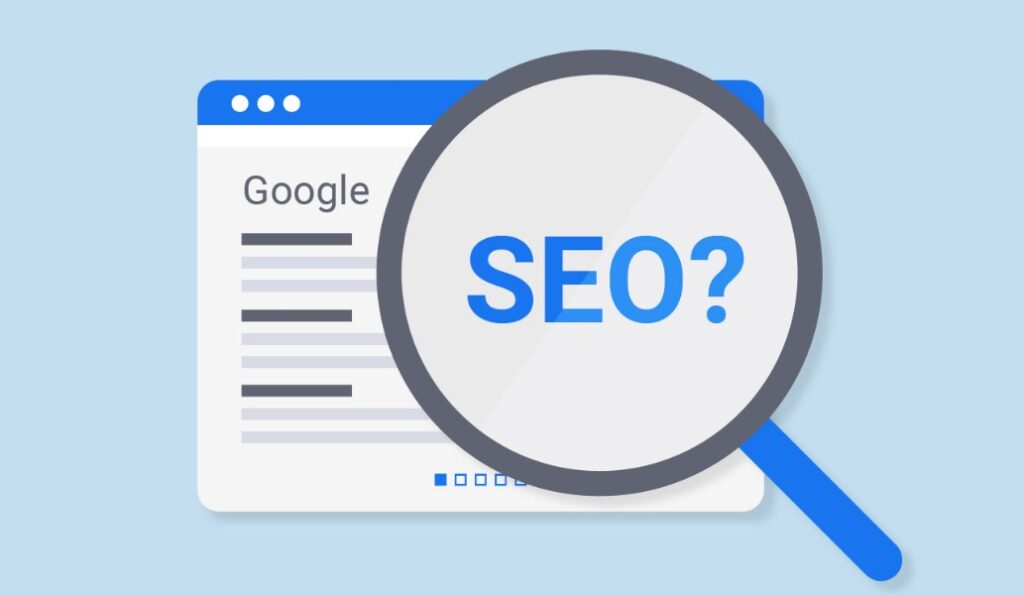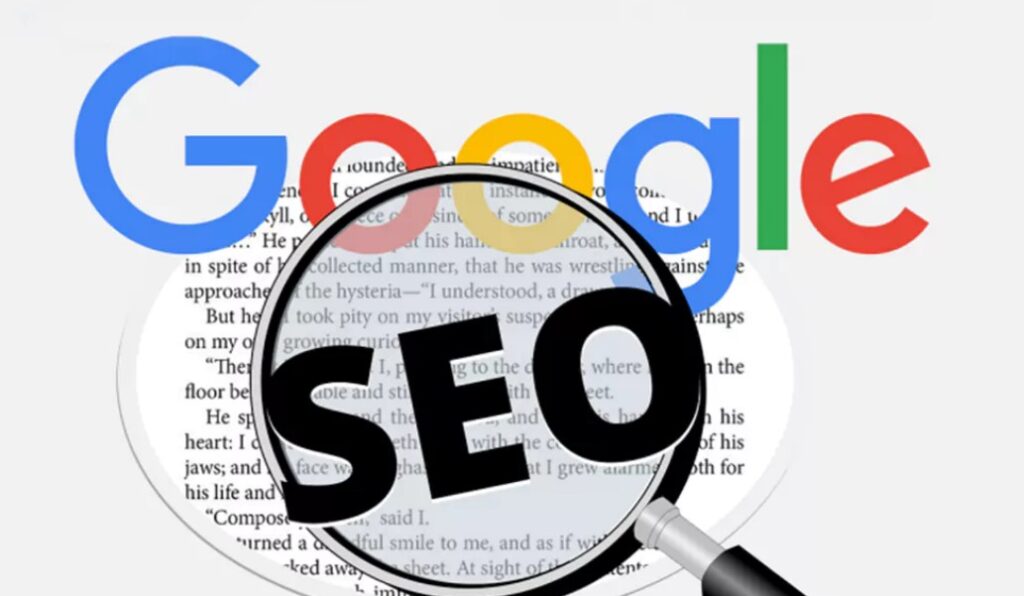Google SEO: How to Optimize Your Website for Better Rankings
In the digital age, the success of any website largely depends on how well it ranks on search engines, especially Google. Google SEO (Search Engine Optimization) is the process of optimizing your website to enhance its visibility on Google search engine results pages (SERPs). As the most widely used search engine, Google drives the majority of online traffic, making it essential for businesses, bloggers, marketers, and webmasters to invest in Google SEO.
This article will provide an in-depth exploration of Google SEO, detailing its importance, key benefits, essential tools, strategies for success, and detailed reviews of some top products that can significantly boost your SEO efforts.
Understanding Google SEO: What Is It and Why Is It Important?

Google SEO encompasses a wide range of strategies and techniques aimed at improving a website’s visibility and ranking on Google’s search results. Google’s search algorithm determines how web pages rank for a given search query based on a variety of factors, including the relevance of content, website authority, and the quality of backlinks.
How Google SEO Works
Google’s search algorithm is designed to deliver the best possible results for a user’s search query. It evaluates numerous factors to determine the relevance and quality of web pages. Understanding how Google’s algorithm works and optimizing for those factors is the key to ranking higher on search results.
Some of the major components that Google’s algorithm looks at when ranking websites include:
- Relevance of Content: Google’s main objective is to match search queries with the most relevant content. Therefore, the content on your website should be well-written, informative, and aligned with the keywords users are searching for.
- Backlinks: Backlinks, or links from other reputable websites to yours, are a major ranking factor. Google sees these as votes of confidence in your content. High-quality backlinks from authoritative websites increase your site’s credibility and can significantly improve your rankings.
- On-Page Optimization: On-page SEO refers to optimizing individual pages on your website. This includes using keywords effectively in titles, headings, meta descriptions, and within the content itself. Additionally, the structure of the URL, image optimization, and internal linking all play a role in improving on-page SEO.
- User Experience (UX): Google prioritizes websites that offer a positive user experience. Websites that are fast, mobile-friendly, and easy to navigate will typically rank higher. For example, Google considers site speed, mobile responsiveness, and clear navigation paths when determining rankings.
- Technical SEO: This includes elements like having a clean site architecture, an XML sitemap, and ensuring that your website is free of technical issues like broken links or slow page load times. Google’s algorithm gives priority to websites that are technically sound.
Types of Google SEO

Google SEO, or The term “search engine optimization” refers to a collection of methods and approaches used to raise a website’s position in Google’s search engine results pages (SERPs). There are several types of SEO that businesses and website owners need to focus on to optimize their site for better visibility and higher rankings. Here’s an overview of the different types of Google SEO:
1. On-Page SEO
On-page SEO refers to the practices that are implemented directly on your website to improve its ranking on Google. This includes optimizing the content, structure, and HTML elements of each page to align with Google’s ranking factors. The key components of on-page SEO include:
- Keyword Optimization: Using relevant keywords in strategic places such as the title tag, headers (H1, H2, etc.), URL, and meta descriptions. It’s crucial to maintain a natural flow of keywords to avoid keyword stuffing.
- Content Quality: High-quality, informative, and relevant content plays a pivotal role in on-page SEO. Google’s algorithm favors websites that provide valuable and useful information to users.
- Internal Linking: Linking to other relevant pages within your website helps improve user experience, encourages visitors to explore more content, and boosts SEO by distributing link equity across your site.
- Image Optimization: Images should be compressed for faster load times and labeled with descriptive alt text to help Google understand their context.
- Mobile-Friendliness: Ensuring your website is mobile-responsive is an essential part of on-page SEO, as Google uses mobile-first indexing.
2. Off-Page SEO
Off-page SEO refers to all the activities that take place outside your website that affect its ranking. The primary focus of off-page SEO is building authority and trustworthiness for your website through backlinks and social signals. Key strategies include:
- Backlink Building: Acquiring high-quality backlinks from reputable websites signals to Google that your website is trustworthy and authoritative. Backlinks are one of the most significant ranking factors.
- Social Media Engagement: While social media signals are not a direct ranking factor, increased social shares and engagement can indirectly influence SEO by driving traffic and boosting visibility.
- Guest Blogging and Influencer Marketing: Publishing content on other authoritative websites and collaborating with influencers can help build your website’s credibility and acquire valuable backlinks.
3. Technical SEO
In order to make sure that search engines can effectively crawl, index, and render your website, technical SEO focuses on making improvements to its technical elements. Among the crucial elements of technical SEO are:
- Site Speed Optimization: Google values fast-loading websites, as they provide a better user experience. Improving page load times can reduce bounce rates and improve rankings.
- XML Sitemaps: Creating and submitting an XML sitemap to Google helps search engines discover and index your website’s pages.
- Fixing Broken Links: Regularly checking for and fixing broken links ensures that search engines and users have a smooth experience when navigating your site.
- SSL Certificate: Ensuring your site is secure (HTTPS) is a ranking factor in Google’s algorithm, as security is an essential part of user experience.
4. Local SEO
Local SEO is designed to improve your website’s visibility in local search results, which is particularly important for businesses with physical locations. Optimizing for local SEO involves:
- Google My Business: Claiming and optimizing your Google My Business listing ensures that your business appears in local search results and Google Maps.
- Local Citations: Listing your business on local directories, review sites, and maps helps improve visibility in local searches.
- Local Content: Creating content that is specific to your geographic location can help target users searching for services or products in your area.
Benefits of Google SEO for Your Business

Adopting a comprehensive Google SEO strategy can provide several significant benefits for your website and business. Here are the key advantages of focusing on Google SEO:
1. Increased Organic Traffic
The most significant benefit of Google SEO is the potential to drive organic traffic to your website. Organic traffic refers to visitors who find your website through search engines without you having to pay for ads. When your website ranks high on Google for relevant search terms, it attracts more visitors, many of whom are likely to be interested in your products or services.
Since organic traffic is free, investing in SEO can provide long-term benefits with consistent traffic growth, making it more cost-effective compared to paid advertising methods such as Google Ads.
2. Higher ROI Compared to Paid Advertising
SEO delivers a higher return on investment (ROI) than paid advertising over time. While ads can generate immediate visibility and traffic, they require continuous funding to maintain results. With SEO, the work you put in continues to pay off over the long term. Once you rank high for certain keywords, you can enjoy a steady stream of traffic without additional costs.
Moreover, SEO helps in improving your website’s visibility for a broader range of relevant search terms, not just the specific keywords you’re targeting in ads. This leads to a higher volume of traffic and more potential customers.
3. Improved Brand Credibility and Trust
Websites that rank higher in Google search results are often seen as more credible and trustworthy by users. People tend to trust results that appear on the first page of Google, and appearing at the top of the search results signals to users that your website is a trusted authority in your field. This improved brand perception can help you gain customer loyalty and build a stronger online reputation.
Higher rankings can also make your brand more visible, increasing opportunities for partnerships, guest posts, and media coverage.
4. Long-Term Benefits
While paid advertising campaigns may deliver quick results, their impact stops as soon as the budget runs out. SEO provides long-term benefits. Once your website starts ranking well for target keywords, you can continue to receive organic traffic over time. However, it is crucial to continuously optimize your site with fresh content and technical updates to maintain and improve rankings.
By focusing on SEO and creating high-quality, evergreen content, your site can maintain its ranking for months or even years, providing a sustainable flow of organic traffic.
5. Competitive Advantage
Being ranked higher on Google than your rivals might provide you a big advantage in highly competitive industries. If your business is visible in the top search results for relevant keywords while your competitors aren’t, you’re more likely to attract potential customers and capture a larger share of the market.
By investing in Google SEO and using advanced techniques like competitor analysis, keyword targeting, and link-building, you can outperform your competition and dominate the search results.
Essential Google SEO Tools and Products to Boost Your Ranking

A strong SEO strategy requires the right tools to monitor, analyze, and improve your website’s performance. Below are three of the best products that can help optimize your Google SEO efforts:
1. SEMrush – All-In-One SEO Tool
SEMrush is one of the most widely used SEO tools, offering a comprehensive suite of features to improve every aspect of SEO. Whether you’re looking to conduct keyword research, analyze competitors, or monitor your site’s backlinks, SEMrush has everything you need in one platform.
- Features:
- Keyword Research: Find high-volume keywords for your business and discover untapped opportunities.
- Competitor Analysis: Track your competitors’ SEO strategies, backlinks, and top-ranking keywords.
- Site Audit: SEMrush provides a detailed audit of your website to help identify any technical issues that may hinder your rankings.
- Backlink Analysis: Monitor your backlinks and ensure they’re from authoritative sources.
- Content Strategy: SEMrush gives you ideas for content creation based on search trends.
- Pros:
- Comprehensive tool with all SEO functionalities in one place.
- Great for tracking keyword rankings and analyzing competitors.
- User-friendly interface with helpful tutorials.
- Cons:
- Pricing plans can be expensive, especially for small businesses.
- Some advanced features require higher-tier plans.
- Price: SEMrush starts at $119.95 per month, with a 7-day free trial available.
- Where to Buy: SEMrush Official Website
Best For: SEMrush is perfect for businesses and agencies looking for a comprehensive, all-in-one tool to manage their SEO, track competitors, and improve their keyword rankings.
2. Ahrefs – Powerful SEO and Content Marketing Tool
Ahrefs is a robust tool known for its backlink analysis capabilities. It helps you optimize your site’s content and track the backlinks that contribute to your site’s authority and ranking.
- Features:
- Site Explorer: Analyze your site’s backlinks and organic search traffic.
- Keyword Explorer: Discover high-traffic keywords and track their ranking difficulty.
- Content Explorer: Find the most popular content on any topic to guide your content strategy.
- Backlink Checker: Monitor the quality and quantity of backlinks pointing to your site.
- Pros:
- Excellent for detailed backlink analysis.
- Very accurate and up-to-date data.
- Extensive keyword research tools.
- Cons:
- Expensive, particularly for smaller websites.
- Can be overwhelming for beginners due to its advanced features.
- Price: Ahrefs starts at $99 per month, with a 7-day trial for $7.
- Where to Buy: Ahrefs Official Website
Best For: Ahrefs is ideal for marketers and businesses who want to build and track their backlink profile, as well as discover new opportunities for content marketing and keyword targeting.
3. Google Search Console – Free SEO Tool from Google
Google Search Console is an essential, free tool for monitoring your website’s performance in Google search. It provides insights directly from Google, helping you understand how your website appears in search results and what areas need improvement.
- Features:
- Performance Report: Track your site’s traffic, keywords, and click-through rates.
- Indexing Status: Monitor the pages of your site that have been indexed by Google.
- URL Inspection Tool: Check how Google sees your website and diagnose indexing issues.
- Mobile Usability: Ensure your website is mobile-friendly, which is critical for ranking.
- Pros:
- Free to use.
- Provides direct feedback from Google on your website’s performance.
- Helps identify and fix technical SEO issues.
- Cons:
- Limited functionality compared to paid SEO tools.
- Requires some technical knowledge to utilize fully.
- Price: Free
- Where to Buy: Google Search Console
Best For: Google Search Console is essential for website owners and webmasters who want to monitor their website’s performance on Google, fix indexing issues, and optimize for mobile usability.
Frequently Asked Questions (FAQs)
1. What is Google SEO and how does it work?
Google SEO refers to the practices and techniques used to improve your website’s ranking on Google search results. This includes optimizing content, improving site speed, acquiring backlinks, and enhancing user experience. Google’s algorithm ranks websites based on relevance, authority, and user experience.
2. How long does it take to see results from SEO?
SEO results can take anywhere from 3 to 6 months to become apparent, depending on the competitiveness of your industry, the quality of your content, and the effectiveness of your SEO strategy. Patience and consistent optimization are key to long-term success.
3. Can I do SEO myself, or should I hire an expert?
While it’s possible to learn and apply SEO yourself, hiring an expert or an agency can save you time and help you get faster results. SEO requires ongoing optimization, and professionals have the expertise to navigate Google’s ever-changing algorithm. However, if you’re on a tight budget, you can start by using SEO tools and learning best practices.